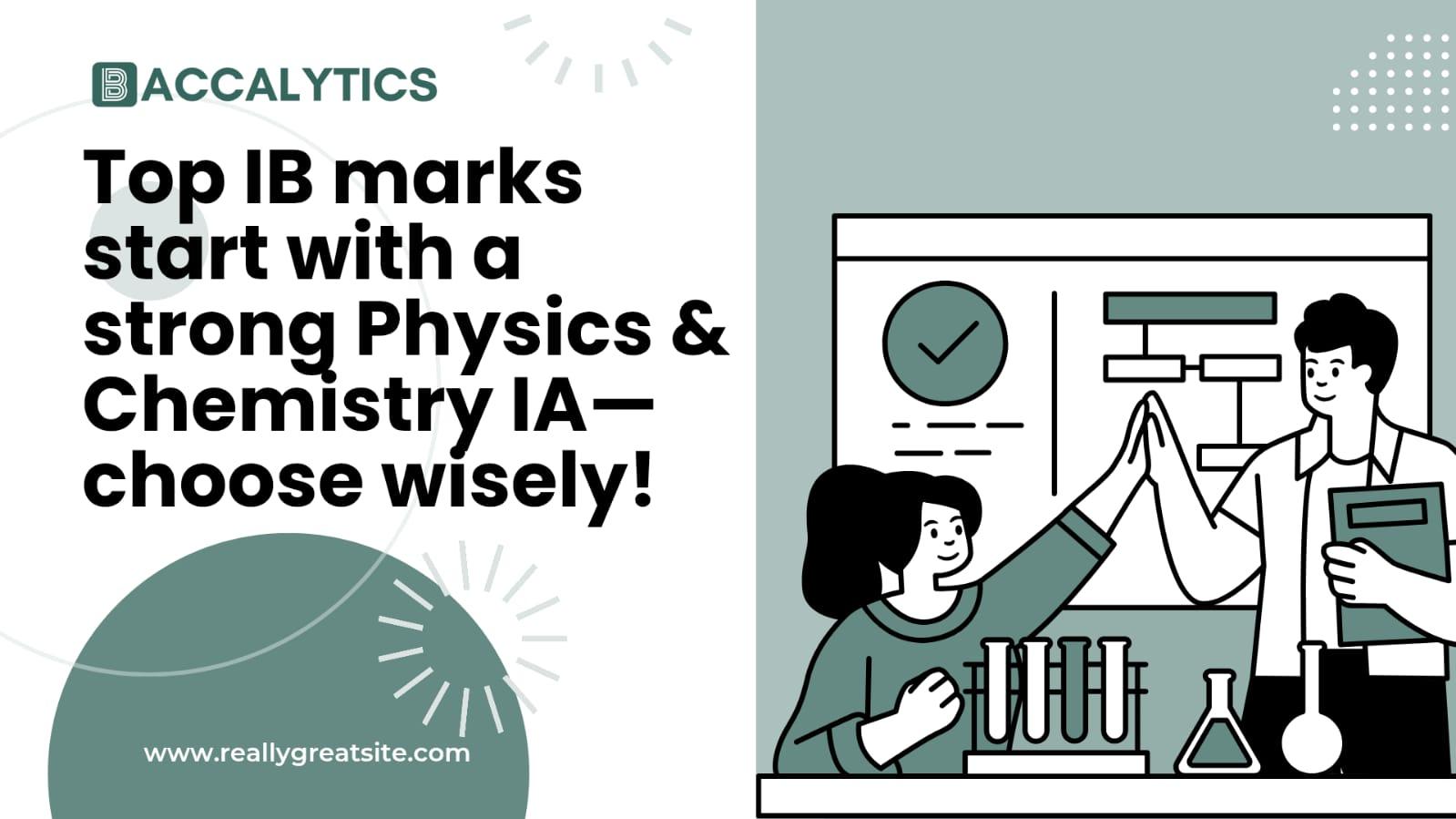
IB Physics & Chemistry IA Ideas That Guarantee High Marks
Rabia Mateen
Hey IB warriors! Let's face it, the Internal Assessments (IAs) for Physics and Chemistry can feel like a daunting mountain to climb. But fear not! With the right approach and a sprinkle of inspiration, you can not only conquer those IAs but also snag those coveted high marks. This blog is your roadmap to success, packed with ideas and tips to elevate your IA game.
1. The Power of Personalization: Choosing Your Topic Wisely

Forget generic experiments! The examiners love IAs that showcase genuine interest and personal connection. Start by brainstorming topics that genuinely intrigue you. Are you fascinated by the physics of sound? Or perhaps the chemistry behind brewing the perfect cup of coffee?
Tip: Think outside the box! Combine your hobbies with the syllabus. For example, explore the physics of skateboarding or the chemistry of baking.
2. Depth Over Breadth: Focusing on a Specific Research Question

A common pitfall is trying to cover too much ground. Instead, narrow your focus to a specific, well-defined research question. This allows you to delve deeper into the topic and demonstrate a thorough understanding.
Physics: Instead of "Investigating the factors affecting projectile motion," try "Investigating the effect of launch angle on the horizontal range of a tennis ball with controlled spin."
Chemistry: Instead of "Investigating the factors affecting reaction rates," try "Investigating the effect of temperature on the rate of iodine clock reaction using a specific concentration of reactants."
3. The Magic of Methodology: Precision and Accuracy

Your methodology is the backbone of your IA. It needs to be precise, accurate, and repeatable. Show that you understand the importance of controlling variables and minimizing uncertainties.
Tip: Clearly outline your experimental procedure, including the materials used, the steps taken, and the methods for data collection. Use diagrams and tables to enhance clarity.
For more information on lab report best practices, consider exploring resources from reputable educational platforms like IBO.org.
4. Data Analysis and Interpretation: The Art of Storytelling

Don't just present your data; tell a story with it! Use graphs, charts, and statistical analysis to identify trends and patterns. Discuss the significance of your findings and relate them back to your research question.
Tip: Be critical of your data. Discuss any limitations or uncertainties and suggest possible improvements.
For in depth analysis of uncertainty, you may want to review resources from a university level physics lab manual, such as those found through a search of "university physics lab manual uncertainty analysis".
5. Evaluation and Conclusion: Showing Your Understanding

The evaluation section is your opportunity to demonstrate your understanding of the scientific process. Discuss the strengths and weaknesses of your investigation, suggest possible extensions, and relate your findings to real-world applications.
Tip: Don't be afraid to acknowledge any challenges you faced and how you overcame them.
For help understanding the assessment criteria, review the official IB subject guides, which can be found via the IB website or through your school resources.
Key Takeaways for High Marks:

- Personal Engagement: Show genuine interest in your chosen topic.
- Clear Research Question: Focus on a specific, well-defined question.
- Rigorous Methodology: Ensure precision, accuracy, and repeatability.
- Thorough Data Analysis: Interpret your data and relate it to your research question.
- Critical Evaluation: Discuss the strengths and limitations of your investigation.
By following these tips and choosing a topic that truly excites you, you'll be well on your way to achieving those high marks in your IB Physics and Chemistry IAs. Good luck!
